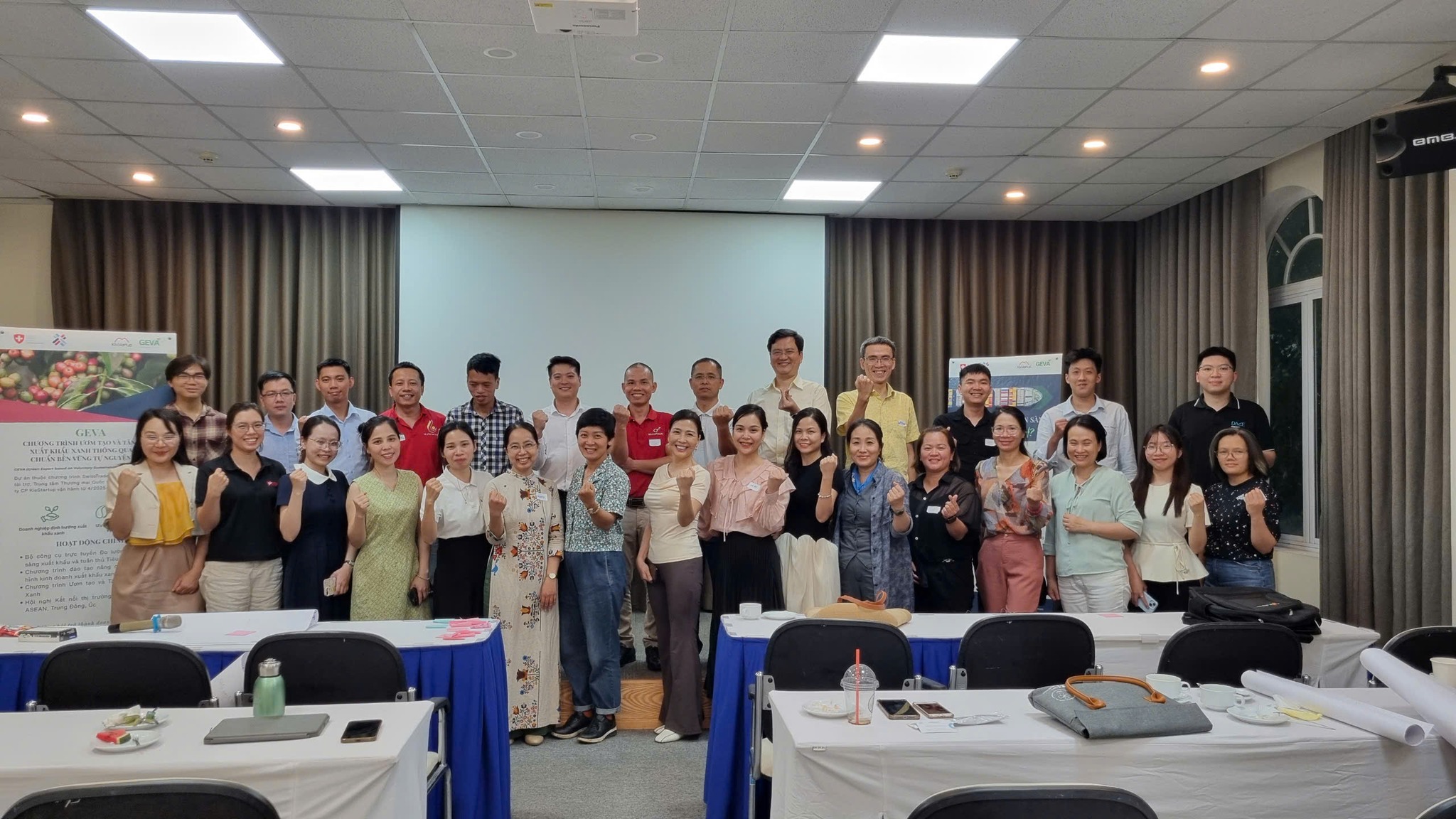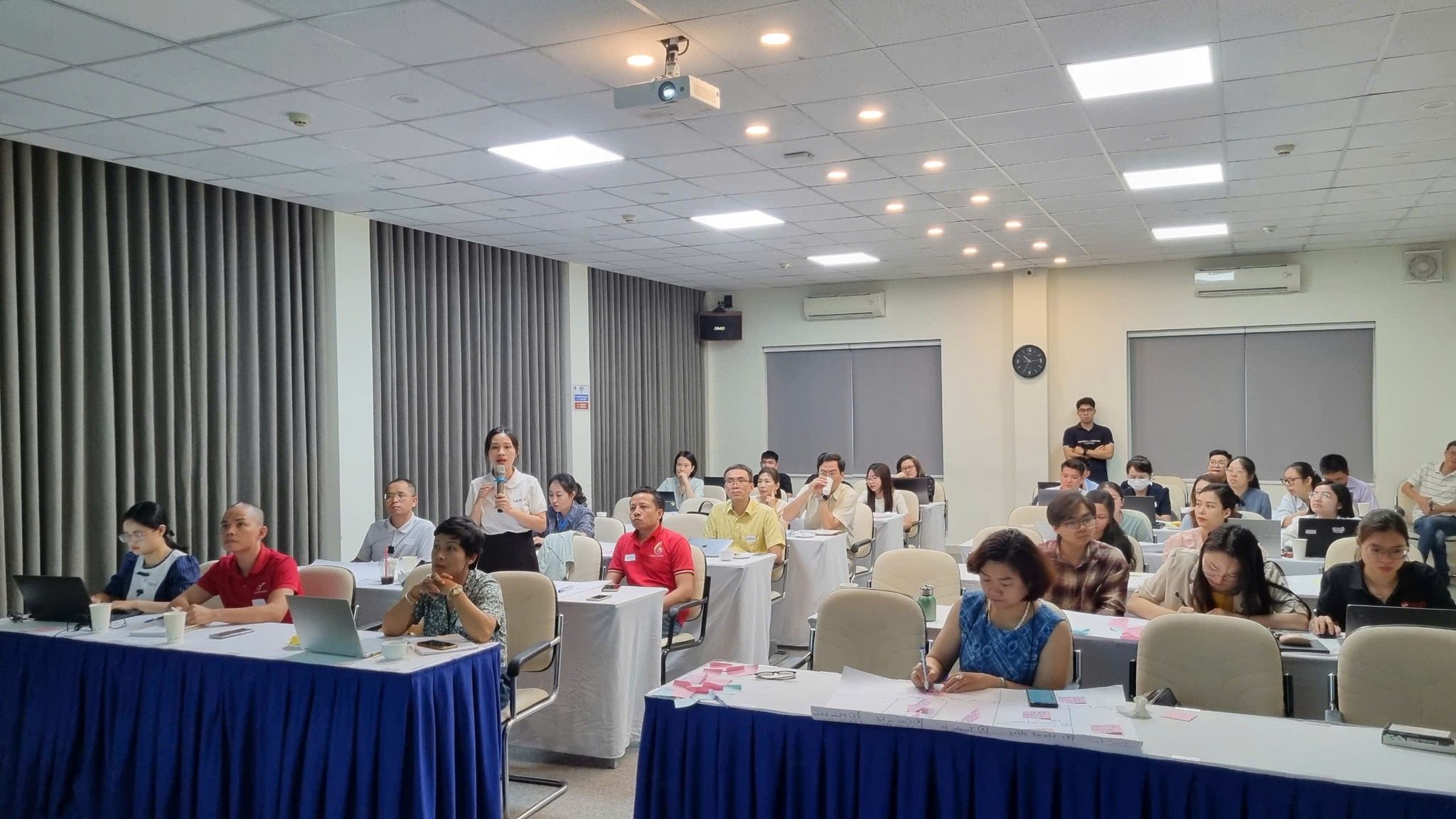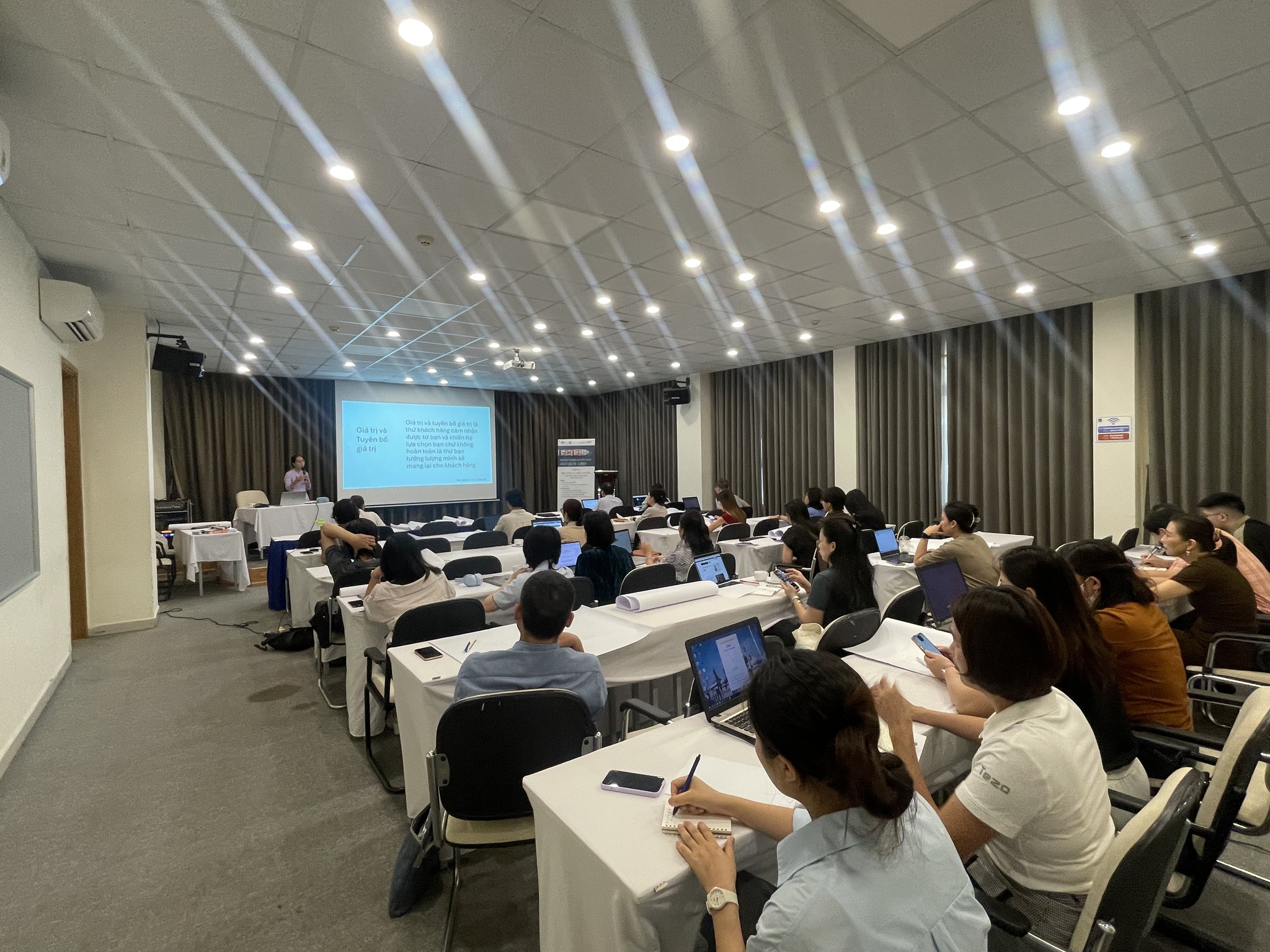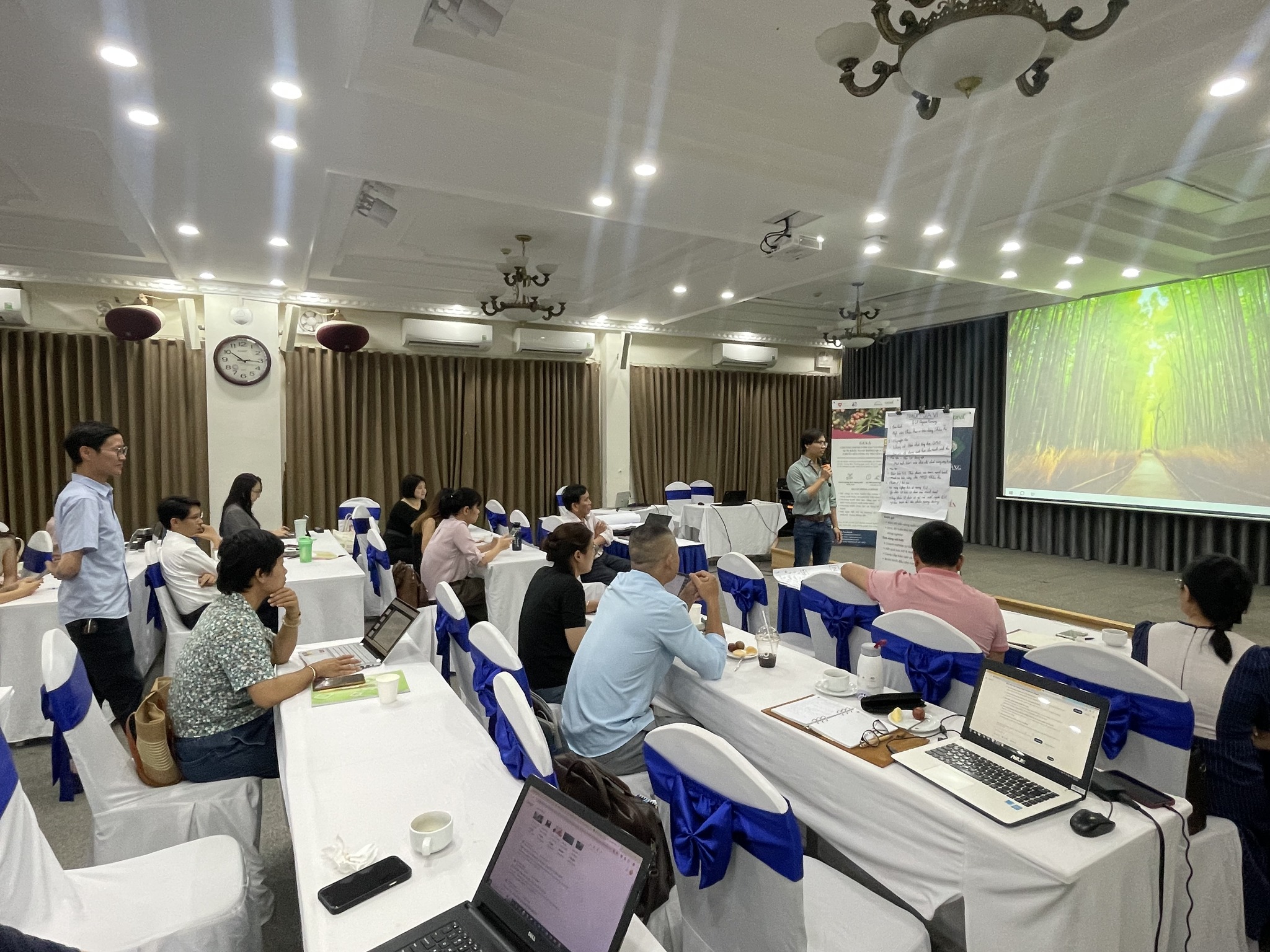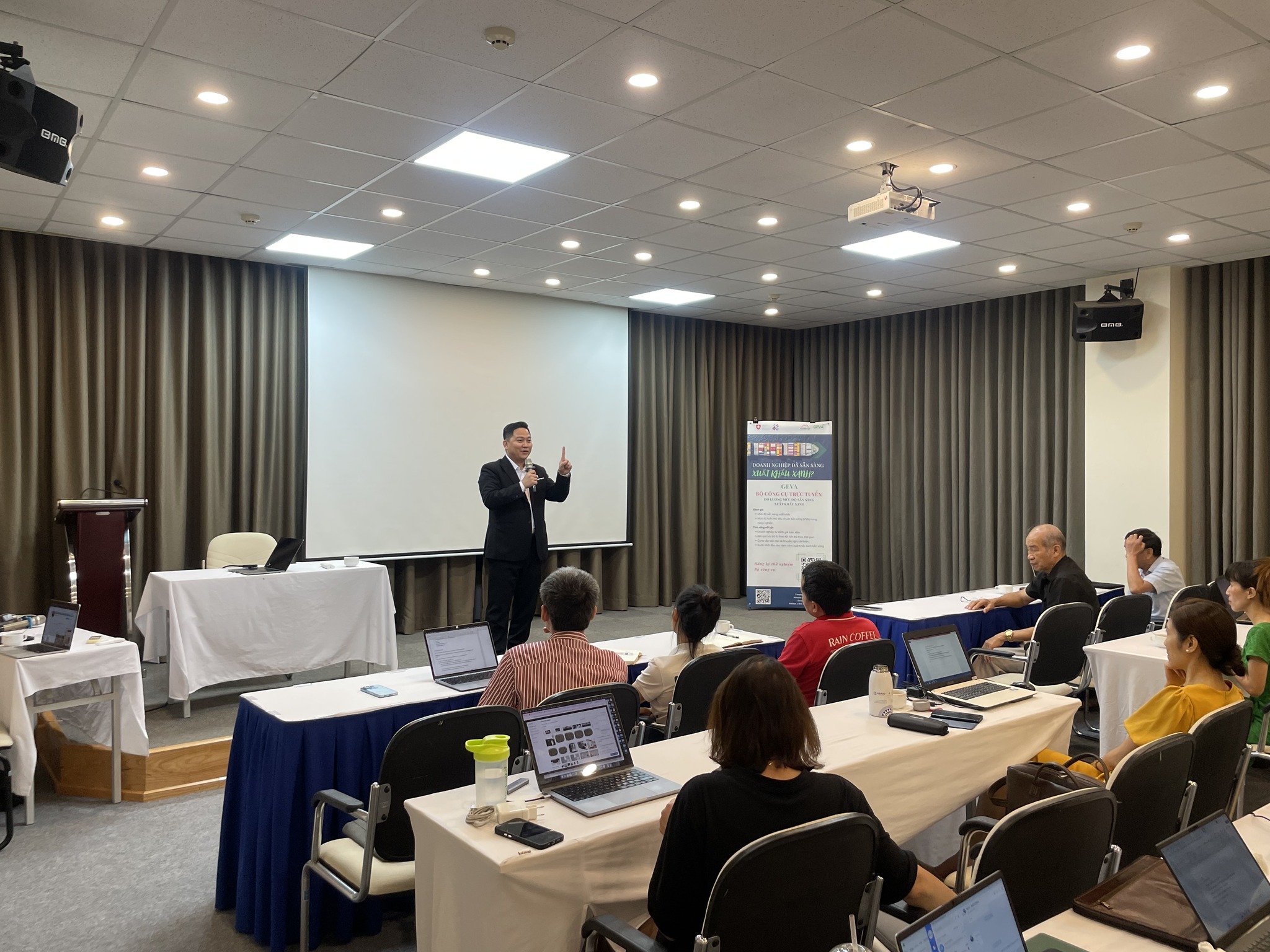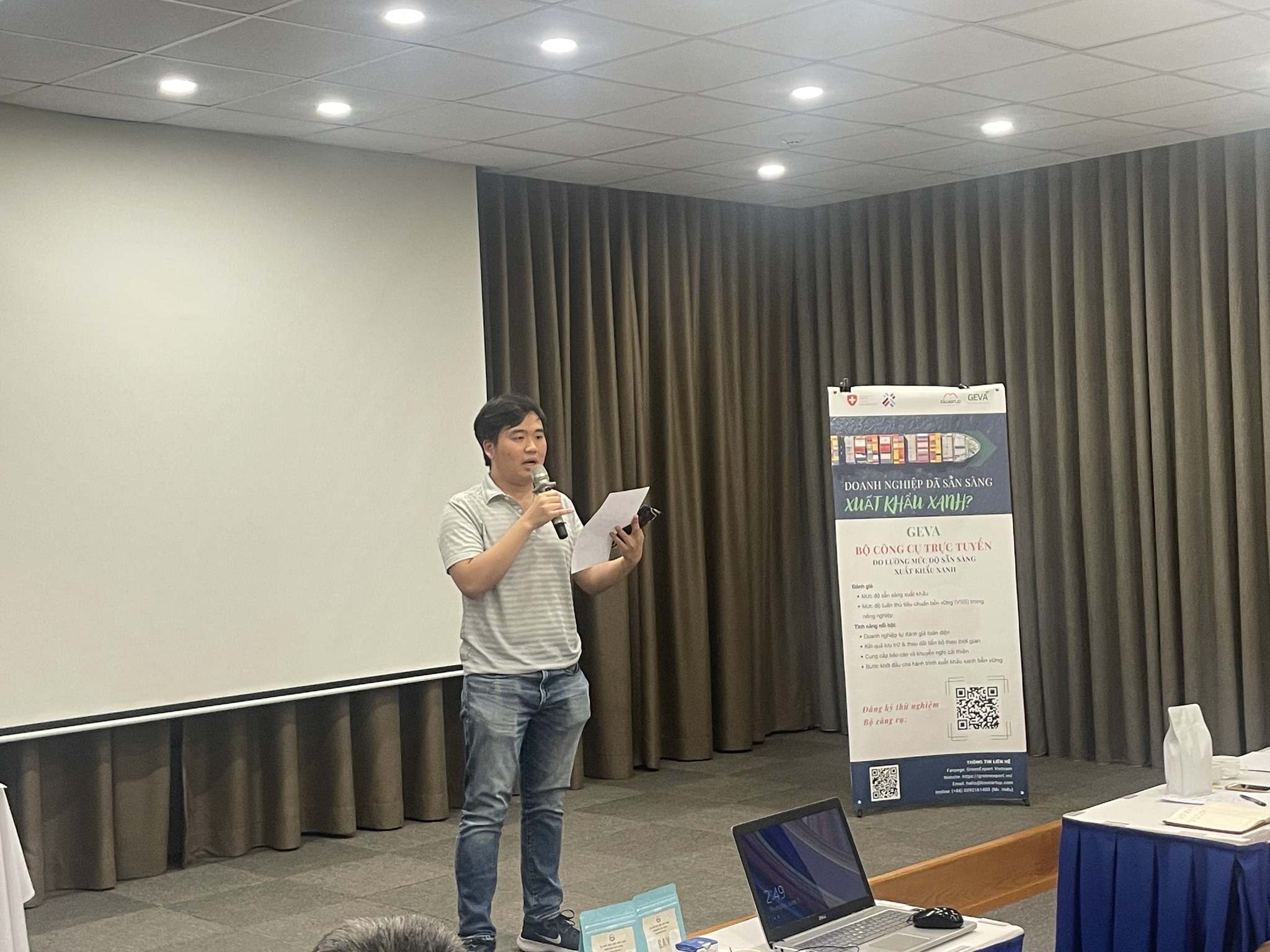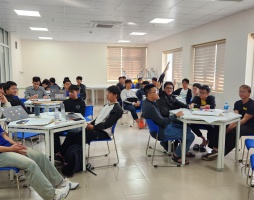In the context of the global consumer trends and trade regulations shifting strongly towards sustainability, "green export" is no longer a temporary choice but a requirement for Vietnamese businesses to access and grow sustainably in the international market. However, the path to achieving this is not just about having a "green" product but also requires a systematic strategy, a flexible business model, and strong internal capabilities.
With the desire to accompany businesses on this journey, the series of 5 training sessions on Green Export in Hanoi, part of the GEVA Project, was organized from May to early June 2025. The program attracted over 50 small and medium enterprises in fields such as agricultural products, food, natural ingredients, and handicrafts, with a serious learning spirit and strong aspirations to expand into international markets.
Green Thinking Starts from the Business Model
Many businesses approached the program seeking answers to the question: "Is my product ready for export?" But from the very first session, the program posed a more fundamental question: "Is your current business model ready for long-term sustainability in the context of global green transformation?"
Under the guidance of expert Nguyen Dang Tuan Minh, bUsinesses thoroughly reviewed their current business models, identified strengths and weaknesses, and accessed a set of tools to measure their readiness for green export, developed by the project. The ongoing thinking was that "greening" starts not from packaging or certification but from the mindset and structure of the business model. Every change in the market, consumer behavior, and international policies directly impacts the business model, and if businesses fail to adapt, they will miss out on opportunities.
Thus, the initial phase of the program focused on helping businesses reflect on themselves – from within – to identify necessary adjustments and allocate resources accordingly.
Mastering Sustainability Standards – Not Just to Meet Standards but to Create Value
The next step of the program introduced businesses to Voluntary Sustainability Standards (VSS) – which, while a barrier, is also a competitive advantage tool in international markets.
With guidance from three experienced experts: Mrs. Ngo Minh Phuong (Director of CDI Center), Mr. Nguyen Hoang Phuong (NetZero.VN), and Mr. Bui Khanh Tung (Deputy Director of Technical CODAS), businesses not only understood the concept of VSS but were also guided on how to implement these standards for specific product categories (coffee – Rainforest Alliance, nuts – USDA Organic, spices – EU Organic, etc.).
The program emphasized not separating the standards from business operations but continuously asking: "When applying this standard, what changes must the business model make? What additional resources are needed? What strengths can be leveraged?" This approach helped businesses realize that applying VSS is not only to overcome barriers but also an opportunity to restructure their models in a more efficient and sustainable way.
Awakening Through Real-World Lessons
While the first three sessions built the internal foundation for businesses, the fourth session introduced them to the “real-world collision” with international markets. Expert Le Sai Gon, with decades of experience in agricultural export, shared authentic stories and did not shy away from discussing risks. From choosing the wrong partners, lacking tight contracts, to misunderstandings in logistics or international payments, each story served as a real warning that any business could face.
The session also expanded awareness about the essence of green export. Businesses gradually understood that green export is not just about introducing a "green" product to the market, but also about ensuring a sustainable operational system – from production, packaging, and transportation to how transactions, logistics, and information transparency are handled. It is an ecosystem where every link, no matter how small, must be designed responsibly towards the environment and meet the increasing expectations of international markets.
Transforming Knowledge into Actionable Strategies
The final session in the training series was the time for businesses to consolidate all the knowledge they had learned and transform it into a green export strategy suited to their unique needs.
Each business was guided to reshape their Core Value Proposition – not just to answer "Who am I?", but to clearly identify the product's position in the global value chain and explain why international customers should choose their products over hundreds of other options.
Then, businesses practiced their sales pitch – a concise, clear, and in-depth introduction to their products, business models, and sustainable development orientation. This was a practical preparation for businesses to approach buyers, investors, or international partners with a professional image and persuasive message.
Training Completion – The Start of the Journey
The 5-session training series has concluded, but for each business, this is just the beginning of their green export journey. It is a long and challenging road, but it is necessary for Vietnamese businesses to accelerate, adapt, and thrive on the global stage.
With a clear plan, a deep strategy, and a sustainable mindset as the foundation, Vietnamese businesses can confidently go further – not only to export but to export responsibly and with vision.
The program will continue to be implemented in Ho Chi Minh City in the coming months, opening more opportunities for the business community to enter a systematic and more effective green export journey.
